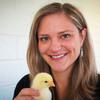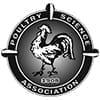Explore all the information on
Poultry management
Poultry management usually refers to the husbandry practices or production techniques that help to maximize the efficiency of production. Sound management practices are very essential to optimize production. Scientific poultry management aims at maximizing returns with minimum investment. A carefully controlled environment that avoids crowding, chilling, overheating, or frightening is almost universal in poultry farming. Cannibalism, which expresses itself as toe picking, feather picking, and tail picking, is controlled by debeaking at one day of age and by other management practices. The feeding, watering, egg gathering, and cleaning operations are highly mechanized. Birds are usually housed in wire cages with two or three animals per cage, depending on the species and breed, and three or four tiers of cages superposed to save space. Cages for egg-laying birds have been found to increase production, lower mortality, reduce cannibalism, lower feeding requirements, reduce diseases and parasites, improve culling, and reduce both space and labour requirements.
The Poultry Extension Collaborative (PEC) brings you the webinar "Global Standards and Research Advances in Poultry Welfare" on May 25th, from 10:00 am to 1:15 pm EST, via Zoom.
...
Comments : 0
Recommendations: 0


Webinar: Accurate values drive better profit in poultry nutrition.
Suggested link
What are the key production indicators (KPI) in poultry industry commercial layers, broilers, broiler breeders and breeder layers? ...
Comments : 6
Recommendations: 1
I. INTRODUCTION Since the 20th century when commercial poultry breeding first started, the growth rate of meat chickens has quadrupled, and their body structure has also changed dramatically especially with the enlarged size of the breast muscles (Muir and Aggrey, 2003). This is the result of a combination of selective breeding, efficient production systems, improved diets and veterinary care (Fanatico et al., 2007). It now takes about 38 days for day old fast-growing broilers...
Comments : 0
Recommendations: 0
Free range hens are exposed to various potential stressors including weather conditions and risk of predation (Gilani et al., 2014). Distress can result in impaired biological functions including reduced reproduction, immunity and growth (Palme, 2012). In order to investigate the impact of early range usage, corticosterone concentrations in egg albumen were measured in response to a stressor (manual handling and relocation) in free range hens. Two groups (n = 625) of commercial free...
Comments : 0
Recommendations: 0
I. INTRODUCTION The feed efficiency (FE) of commercial laying hens has improved steadily since genetic selection began in earnest, with modern hybrids converting approximately 2.1 kg of feed into 1 kg of eggs. Recent research suggests considerable variation in FI and FE between hens kept under common management and dietary conditions (Akter et al., 2018). Research also indicates that many factors affect FE, including body composition, the digestion and metabolism of nutrients,...
Comments : 0
Recommendations: 0
Let's Squawk About It is a monthly interview segment by the Poultry Science Association. The COVID-19 Pandemic has changed many aspects of life, but how about for a chicken? Roy Brister, of Tyson Foods, shares some insight on how feed formulation had to change due to a domino effect brought on by the pandemic....
Comments : 7
Recommendations: 8
A patented split-feeding program for broiler breeders is disrupting conventional approaches to poultry nutrition. Developed by Trouw Nutrition, a Nutreco company, the split-feeding innovation has demonstrated improved hatching rates and lower feed costs in research centre trials and commercial farm studies.
The system delivers nutrients that support the birds’ requirements for egg formation at different times of day, as research conducted with laying hens shows birds’...
Comments : 0
Recommendations: 0
...
Comments : 0
Recommendations: 0
Diseases and infections have always been a major concern to the poultry industry. Fortunately, microbial contamination can be prevented and controlled using proper management practices and modern health products. Microorganisms are everywhere! Some are relatively harmless, while others can cause disease. Some pose a lethal threat to one species of animal while remaining harmless to another species. Some organisms are easily destroyed, while others are very...
Comments : 9
Recommendations: 0
By Leonie Jacobs/Poultry Extension Collaborative Blog
Tessa Grebey and colleagues researched dustbathing behavior in a range of commercial laying hen breeds, including Hy-Line Brown, Bovan Brown, DeKalb White, and Hy-Line birds.
They found that strains respond to social situations differently.
DeKalb White and Hy-Line W36 birds dustbathe in larger groups (10-11 birds), compared to the brown breeds (3-4 birds)
DeKalb White and...
Comments : 0
Recommendations: 0
In general, composting poultry can be described as an all-natural, environmentally friendly method of mortality management, which minimizes water and air pollution by retaining nutrients, pathogens, and odors. Given the right conditions, microorganisms break down organic material (poultry mortalities, in this case) and carbon into a useful and valuable finished product. Composting also can enhance disease prevention efforts and biosecurity practices by operating in an...
Comments : 9
Recommendations: 3
I. INTRODUCTION The profitability of the egg industry at commercial farm level is influenced by key production traits such as feed consumption, feed efficiency and egg quality. These measures of profitability are primarily controlled by genetics, but are also influenced by environmental factors leading up to the onset of lay and beyond. Consequently, inconsistency in voluntary feed intake and hen body weight can result in variations in feed efficiency, egg production and egg...
Comments : 0
Recommendations: 0
During this PSA interview, Abbey Mathew (Aviagen New Zealand) explains how this country dealt with the effects of the pandemic regarding safety and supply chain. Let's Squawk About It is a monthly interview segment by the Poultry Science Association....
Comments : 0
Recommendations: 0


Broiler trial in the Netherlands confirms 2018 EFSA scientific opinion on methionine sources while validating the experimental approach
Suggested link
Let's Squawk About It is a monthly interview segment by the Poultry Science Association. In honor of Thanksgiving, we discussed all things turkey with Brandon Koch of Koch's Turkey Farm. This interview provided interesting insight into how turkey poults are sexed at an early age, the avenues turkey has lent itself well to, and more!...
Comments : 0
Recommendations: 1
INTRODUCTION Producing food from farmed animals is a large and very complex process that occurs in integrated networks made up of many individual animal producers, supporting businesses (veterinarians, feed suppliers, animal haulers, animal marketers, etc.), and processors (slaughter plants) (1–4). Farmed animal food has many names including Agri-Food systems, food animal value chains, food supply chains, livestock production systems, and others. For simplicity...
Comments : 0
Recommendations: 1


FIGAP 2026: The Scientific And Technological Exhibition Of The Livestock Industry
Suggested link
MADISON, N.J. – Merck Animal Health, known as MSD Animal Health outside the United States and Canada, a division of Merck & Co., Inc., Kenilworth, N.J., USA (NYSE:MRK), announced the completion of its acquisition of PrognostiX Poultry Limited d/b/a Poultry Sense Ltd. from its founding shareholders. Poultry Sense Ltd. is an innovator in health and environmental monitoring solutions for the poultry industry. In March 2019, Merck Animal Health invested in Poultry Sense Ltd., to...
Comments : 0
Recommendations: 0
Precision poultry farming is the use of advanced technologies to optimize the contribution and health/welfare management of individual animals. UGA poultry science Extension team will host the 2021 Georgia Precision Poultry Farming Conference to...
Comments : 0
Recommendations: 1
This online training series covers a broad range of topics for those new to the poultry industry as well as experienced professionals. Participants will have the opportunity to interact with experts in many areas of poultry production during the series. Each...
Comments : 0
Recommendations: 0
Animal Welfare is Key to the Sustainability of the Poultry Industry Animal welfare is in the eye of the beholder. Some consumers are willing to pay more for products from companies with reputations that align with their beliefs. The concept of animal welfare is...
Comments : 0
Recommendations: 3













.mp4&w=3840&q=75)
.jpg&w=3840&q=75)




.jpg&w=3840&q=75)










